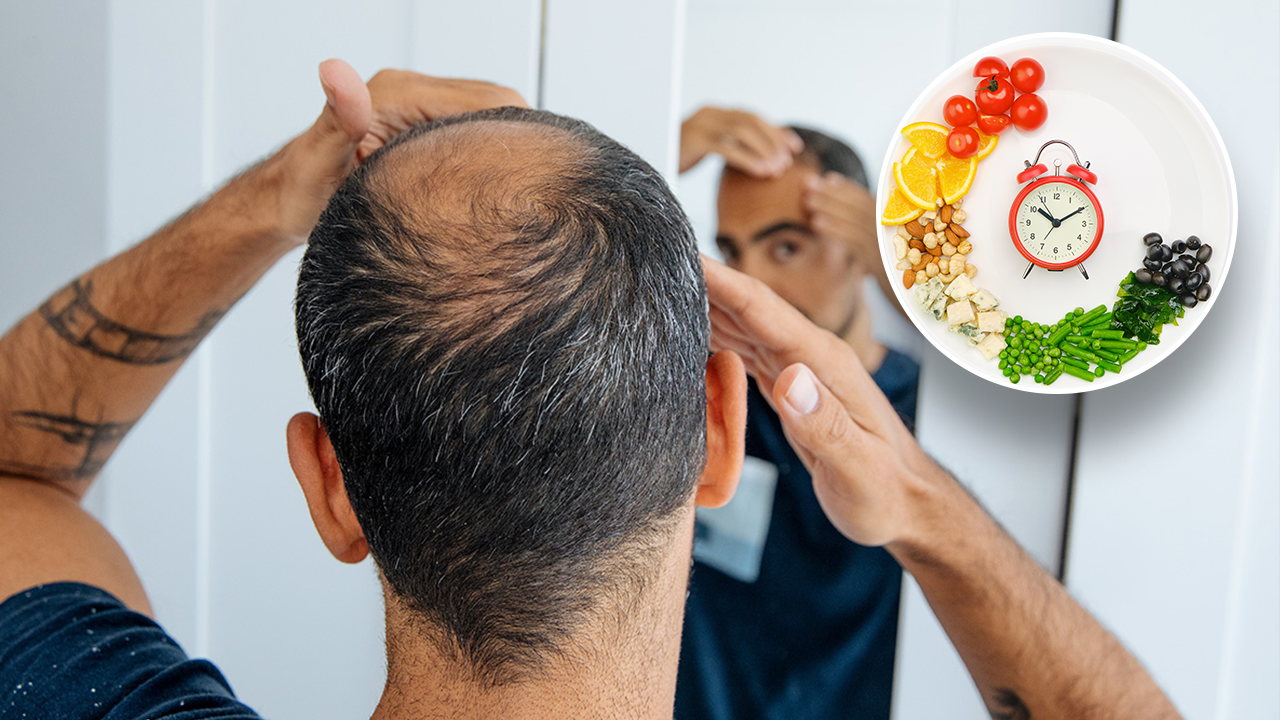This popular diet plan may slow down hair growth, according to a study.
On average, a clinical trial discovered that 18% of hair growth was reduced when participants fasted for 18 hours each day.

Your diet may be slowing down your hair growth.
Research from Westlake University in Zhejiang, China, reveals that intermittent fasting can significantly decrease hair growth in humans.
The intermittent fasting approach typically entails limiting eating to an eight-hour timeframe, followed by 16 hours of fasting.
According to Johns Hopkins Medicine, research indicates that intermittent fasting can aid in weight loss and management, as well as improve heart health and memory.
Some intermittent fasting regimens may inhibit hair follicle regeneration in mice, according to a Chinese study.

The study examined mice that were shaved and adhered to varying intermittent fasting schedules.
According to BBC Science Focus, the group that followed a normal eating schedule experienced full hair growth after 30 days, while the group that fasted only exhibited partial hair growth after 96 days.
A study published in the journal Cell by Cell Press found that prolonged fasting causes the adrenal glands to stop tissue regeneration during periods of unstable nutrient supply.
The intermittent fasting group experienced the death of hair follicle stem cells, according to the BBC report.
The study showed that mice had better metabolic health and slower hair growth, but the effects may not be the same in humans due to their slower metabolism and different hair growth patterns.

The researchers examined 49 healthy young adults who adhered to an 18-hour daily fasting routine in a subsequent human clinical trial.
An average of 18% reduction in hair growth was discovered through this timing.
A study on small animals suggests that fasting can impact the growth cycle of hair follicles, according to Dr. Brendan Camp, a board-certified dermatologist at MDCS Dermatology.
According to Camp, who was not involved in the research, fasting-induced metabolic changes may cause stress on hair growth, resulting in a slowdown.
"During fasting, when the body switches from metabolizing fat to glucose, oxidative stress may hinder hair growth."

To encourage hair growth, Camp recommends adjusting diet to emphasize vitamins and nutrients such as iron, selenium, zinc, biotin, folate, and vitamin D.
He stated that preventing nutritional deficiencies, which can lead to hair loss, is possible.
Significant weight loss in a short timeframe due to crash diets or illnesses can lead to the development of telogen effluvium, as warned by the dermatologist.
He stated that a considerable amount of hair loss typically occurs in response to a health event, whether it is a physical ailment or a highly stressful life circumstance.
The research was funded by the National Natural Science Foundation of China, the Key R&D Program of Zhejiang, the Westlake Laboratory of Life Sciences and Biomedicine, the Research Center for Industries of the Future (RCIF), and the Center of Synthetic Biology and Integrated Bioengineering at Westlake University, as stated in a press release.
Planet Chronicle Digital reached out to the study authors for comment.
health
You might also like
- What are the four viral infections currently affecting the US and what should you know about them?
- Doctors hail a 'New golden age' with Trump and a healthier America.
- Researchers suggest a more accurate way to measure obesity than BMI.
- Ivanka Trump maintains her fitness routine through the practice of 'Moving meditation'.
- To detect more bird flu cases, the CDC advises quicker 'subtyping'.



















